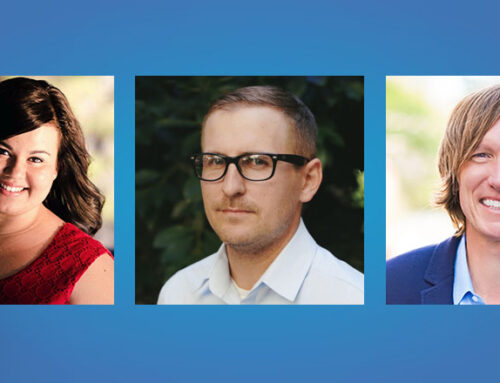On October 30, schools across America were invited to participate in Mix it Up at Lunch Day. The cafeteria has been identified by students as one of the most divided spaces for them and the Southern Poverty Law Center has promoted, for over a decade, this day as an invitation for students to eat lunch with someone who is different than them. A Christian organization, the American Family Association, denounced Mix it Up at Lunch Day as one more subversive ploy to promote a homosexual agenda. The Southern Poverty Law Center has accused them of being a hate group.
Something tells me these groups didn’t mix it up at lunch.
Mixing it up isn’t easy and it highlights a symptomatic cultural hurdle–that many can’t, won’t, or don’t know how to talk with others. Regarding many Christians, this especially evident with their behaviors often fueled by their eschatology.
If the lunchroom is seen as hostile environment, an epistemological battleground, and a culture war–then choose your friends carefully. Stay at your table. Talk to your own kind. Pray for those poor souls over there. Hold your breath. The cosmic lunch period is almost over.
If, however, one’s eschatology is rooted in the belief that it is inaugurated through the resurrection of Jesus Christ, where Jesus has brought the future to the present and followers, through Christ’s ascension and Spirit, participate with God in healing and reconciling the world– then where one sits now matters. The great banquet table, where we will likely be surprised by who we’re seated with… is the eschatological Mix it Up at Lunch Day. It’s a day we hope for and seek to realize each lunch period.
Still, Christians find it hard to come to the table, and most often don’t. Princeton sociologist Robert Wuthnow (2005) has observed that most Christian churches, aware of our country’s religious diversity and pluralism, choose to respond–by doing nothing.
Christians betray their eschatological hope by “doing nothing” and bring a plethora of problems, especially to our adolescents and emerging adults who are trying to make their way in their increasingly complex worlds. This is worth reflecting upon:
First, “doing nothing” perpetuates Moralistic Therapeutic Deism.
As much as MTD is now embedded in our youth ministry psyche and is believed to be the primary lens of adolescent religious belief, let’s remember that this adolescent creed is the fruit of faith communities who have likely failed to prepare young people express faith in their pluralistic worlds.
Failure is guaranteed when we condition young people to simplify and privatize their faith by damning exploration in religious moratorium while praising foreclosed religious parroting. Failure is guaranteed when we fail to understand that young people use MTD as a way to connect with others in their pluralistic community. It’s their attempt to find a lowest common denominator where all can get along which is, to them, a better option than refusing to eat with those different than them.
Second, “doing nothing” preserves the non-pluralistic spaces where adults live while missing the pluralistic worlds in which our young people dwell.
Adults have the power to create spaces that are congruent with their beliefs and lifestyles. Work, relationships, and faith communities are self-chosen, and then protected by an oppositional sub- culture where, as self-identified minorities, they defend themselves from the attacks from an increasingly hostile (i.e. different) world. Adolescents and emerging adults, however, do not have the luxury of insulation. They will study, work, compete, live, and yes even become friends with people who are very different than them. Pluralism isn’t something that they have chosen. It is present in their daily lives.
Insulated and separatist outlooks affect Youth Ministry reinforcing one driving value–safety. Further, the rise of religious groups (especially Evangelical) on public campuses, while at first blush encouraging, are proving to be groups that merely attract their own kind, view the campus as hostile, reinforce non-critical thinking, and rarely engage with groups different from them– unless evangelizing.
So, instead of doing nothing… let’s do something.
“Doing something” requires adults to risk living and leading out of our eschatological hope, not our oppositional subculture.
This requires a reframing of how we engage the other. It means leaving the safety of our insulated worlds and safe lunch tables to step into our pluralistic communities ready to dialogue, learn, and understand our neighbors.
Youth workers have the most to lose. It risks reconsidering ministry philosophies informed by an oppositional subculture perspective. It risks inviting parents to engage in conversations they have hired youth pastors to protect their children from. It risks reframing youth pastors’ own theology and. It risks their jobs.
Adolescents have the most to gain. They’ll have youthworkers who will advocate on their behalf, journeying with them as makes sense of their lives in their pluralistic contexts, and faithfully discipling them to seek out their neighbor, love unconditionally, and articulate in their faith.
Churches have the most to learn. While many wring their hands over young people leaving them (consider the metaphor), churches must come to grips that they are leaving young people every time they do nothing. They must reconsider their place and practices within their local and global community.
And so we look to youthworkers, asking too much of them, once again. But my hope is that some will risk–risk it all–to step outside their insulated lives and ministries; to advocate for adolescents by acknowledging the pluralistic worlds in which they live; and to prepare them to be global citizens and kingdom people who ferociously love God and neighbor.
Here, I suggest a simple start by learning to talk with our neighbors again; to not shy away from inter-faith dialogue; and to seek to understand the other, whomever our “other” may be. Let’s remember that every day we Mix it Up at Lunch we are enacting our eschatological hope of the great banquet lunch table.
Wuthnow, R. (2005). America and the challenges of religious diversity. Princeton, N.J.: Princeton University Press.






Leave A Comment